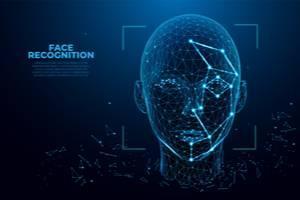 People in the 21st century usually expect that images of their faces will be captured on a regular basis, such as by security cameras at stores they visit. However, they may not be aware that these images could potentially be used against them in cases where police officers investigate alleged crimes, identify possible suspects, and decide to perform arrests and pursue criminal charges. As the use of facial recognition technology by law enforcement continues to increase, many criminal defense lawyers, privacy advocates, and others who are concerned about criminal justice have raised concerns about how defendants may be affected by these practices.
People in the 21st century usually expect that images of their faces will be captured on a regular basis, such as by security cameras at stores they visit. However, they may not be aware that these images could potentially be used against them in cases where police officers investigate alleged crimes, identify possible suspects, and decide to perform arrests and pursue criminal charges. As the use of facial recognition technology by law enforcement continues to increase, many criminal defense lawyers, privacy advocates, and others who are concerned about criminal justice have raised concerns about how defendants may be affected by these practices.
According to a study performed by the Georgetown Center on Privacy and Technology in 2016, around half of all adults in the United States are included in facial recognition databases, and police in most states have access to this information. These databases include driver’s license photos and mug shots of people who have been arrested, and some facial recognition services have also compiled information from publicly available photos people have shared online, such as on Facebook or Instagram.
Unfortunately, few police departments or state governments have adopted rules about when and how facial recognition technology should be used. A program may scan through thousands of photos to identify suspects, providing confidence scores for potential matches. However, there are rarely rules about what inputs may be used when performing searches or what confidence scores are acceptable when identifying suspects. This introduces a great deal of bias into the system, making it more likely that the wrong suspects will be identified.
The misidentification of suspects by facial recognition is a significant issue for minorities. Studies have found that these systems are less accurate when identifying people who are not white men. Dark-skinned people and women are more likely to be wrongly identified, and this may lead to false arrests.
To make matters worse, prosecutors often do not inform defendants or their attorneys that facial recognition systems were used to identify suspects. Instead, police officers may state that a witness identified a suspect after being shown a photo, without noting that the photo was obtained after performing a facial recognition search. This can put defendants at a significant disadvantage in a criminal case, since they may have more difficulty challenging evidence if they are not made aware of the technology used to obtain photos or other information.
The laws and policies surrounding the use of facial recognition and similar technologies are constantly changing. Determining whether these technologies are a factor in a criminal case can sometimes be difficult, which is why it is important for defendants to work with an attorney who can identify the use of facial recognition and ensure that this issue is addressed properly during a criminal case. At Woolf & Ross Law Firm, LLC, we believe in fighting for our clients’ rights, and we will work to make sure they are treated fairly during the legal process. To learn how we can help you defend against criminal charges, contact our Hartford criminal defense lawyer at 860-290-8690 and schedule a free consultation today.
Sources:
https://www.wired.com/story/hidden-role-facial-recognition-tech-arrests/
https://www.brookings.edu/research/police-surveillance-and-facial-recognition-why-data-privacy-is-an-imperative-for-communities-of-color/
 50 Founders Plaza
50 Founders Plaza

